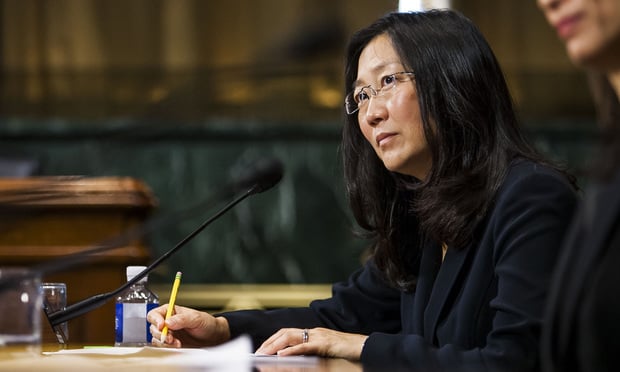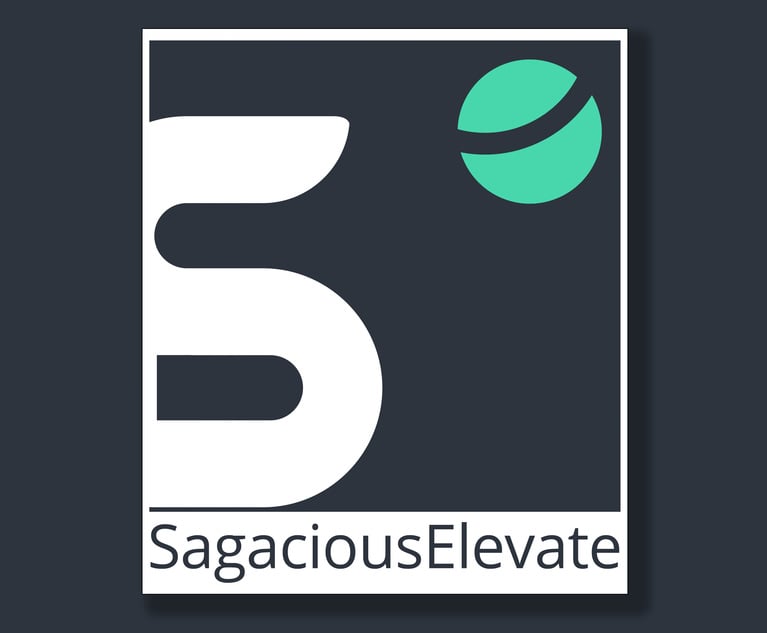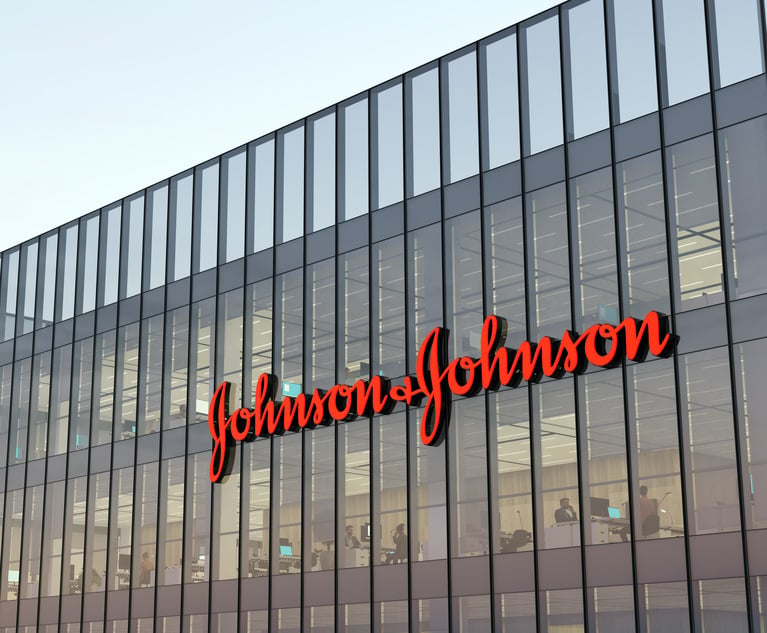Judge Hires Special Master to Vet Attorney Bills in Anthem Settlement
"I'm deeply disappointed," U.S. District Judge Lucy Koh told lead plaintiffs attorney Eve Cervantez at a hearing on Thursday in San Jose.
February 01, 2018 at 09:42 PM
6 minute read
 U.S. District Judge Lucy Koh
U.S. District Judge Lucy Koh
A federal judge in California said Thursday she plans to hire a special master to scrutinize the billing records of plaintiffs firms in Anthem's $115 million data breach settlement.
“I'm deeply disappointed,” U.S. District Judge Lucy Koh told lead plaintiffs attorney Eve Cervantez at a hearing on Thursday in San Jose. Koh, who has been a critic of attorney billing in past cases, appeared to be particularly incensed about how plaintiffs attorneys Cervantez, of San Francisco's Altschuler Berzon, and Andrew Friedman, at Washington D.C.-based Cohen Milstein Sellers & Toll, brought in 49 other law firms—all of which submitted bills as part of a $38 million fee request. Among those additional firms were four of the eight law firms that Koh explicitly trimmed from the initial leadership team in 2015. Koh appointed Cervantez and Friedman as lead counsel along with plaintiffs steering committee members Michael Sobol of Lieff Cabraser Heimann & Bernstein and Eric Gibbs of Girard Gibbs.
“I would never have appointed you or Mr. Friedman, had I known you were going to pile on 53 law firms on this case,” she said. “And I'm going to keep that in mind if you apply for appointment of counsel in another case with me. I never would have approved 53 law firms in my case. If I thought eight was too many, what made you think I wanted 53 firms churning on this case?”
➤➤ Get class action news and commentary straight to your in-box with Amanda Bronstad's Critical Mass. Learn more and sign up here.
In court, she said she planned to appoint retired Santa Clara County Superior Court Judge James Kleinberg, now at JAMS in San Jose, to be special master, but she allowed both sides to submit oppositions to her selection or alternative candidates by Feb. 2.
Cervantez, who acknowledged she had never been in charge of multidistrict litigation before, attempted to explain how most of the firms were not in charge of the “high level” decisions in the case and were brought in primarily to find more than 100 lead plaintiffs in the consolidated class action complaint.
“I understand you're upset,” she said. She noted that 26 law firms were involved “because they specifically had plaintiffs in the case, were involved in vetting plaintiffs, and they were involved in discovery responses and the depositions of their plaintiffs.”
Moreover, people's data had been hacked, she pointed out.
“Time was of the essence here,” she said. “We could have had fewer firms working on the case, and it would have taken a much longer time.”
But Koh, who had asked plaintiffs counsel for additional billing records earlier this week, went over the records one by one, questioning why of the 329 lawyers who submitted bills in the case, more than 100 were partners, and more than two dozen were contract attorneys charging $300 to $400 per hour.
“I would like you to find a single paying client that would have approved these type of markups in a contract attorney,” she said.
She ordered plaintiffs lawyers to submit detailed records, including those involving contract attorneys, by Monday.
“I'm supposed to be watching out for the interests of the class,” she said. “I'm entitled to know how much profit you think you're entitled to with regard to every one of these people.”
Class action critic Ted Frank, representing an objector, had asked for a special master, claiming the fee request was “outrageous on its face.” Frank, of the Competitive Enterprise Institute's Center for Class Action Fairness, had criticized $23 million in notice and administration costs and questioned the average $360 hourly rate for contract attorneys submitted in the fee request. He noted that a special master in Boston is investigating Lieff Cabraser, along with two other law firms, for potential overbilling for staff attorneys in a $74.5 million fee request in securities class action settlements with State Street.
Frank also questioned why 49 other firms were set to receive $13.6 million in fees in the case.
In court papers, Cervantez and Friedman defended their $38 million fee request. In a Jan. 25 reply brief, they said the fee request was less than eight percent of the settlement's estimated $500 million value, when including credit monitoring, and 33 percent of the $155 million amount, which was justified due to the “exceptional results” and “extremely risky nature” of the case. The $115 million settlement also would provide a $15 million fund to compensate class members.
As to the settlement itself, Koh said she was inclined to “wait on final approval and get all this sorted out.”
Prior to the hearing, the judge had ordered additional briefing on the effect that the U.S. Court of Appeals for the Ninth Circuit's Jan. 23 ruling in In re Hyundai and Kia Fuel Economy Litigation could have on the settlement. The 2-1 Hyundai decision reversed certification of a nationwide class of car consumers after concluding that the district judge failed to consider potential differences in various state consumer laws in finding that common issues predominated in the settlement. The decision sent shock waves throughout the class action bar for potentially threatening the viability of class action settlements in the Ninth Circuit.
But Koh didn't ask many questions about Hyundai during the hearing.
She did, however, raise several questions about the claims rate, which she calculated at about 1.86 percent of the total class. More than 78 million people had their personal information compromised in Anthem's data breach in 2015. And she raised concerns about the settlement's structure.
“It does bother me that 55 percent would go to attorney fees and administrative costs and only 45 percent goes to class members,” she said.
This content has been archived. It is available through our partners, LexisNexis® and Bloomberg Law.
To view this content, please continue to their sites.
Not a Lexis Subscriber?
Subscribe Now
Not a Bloomberg Law Subscriber?
Subscribe Now
NOT FOR REPRINT
© 2025 ALM Global, LLC, All Rights Reserved. Request academic re-use from www.copyright.com. All other uses, submit a request to [email protected]. For more information visit Asset & Logo Licensing.
You Might Like
View All
Elevate Acquires Intellectual Property Research Provider Sagacious IP
3 minute read
As Nonprofits Plead for Answers, Dem AGs Plan Suit to Block Trump Funding Freeze
4 minute read
ArentFox Schiff Adds Global Complex Litigation Partner in Los Angeles

Trending Stories
- 1Is It Time for Large UK Law Firms to Begin Taking Private Equity Investment?
- 2Federal Judge Pauses Trump Funding Freeze as Democratic AGs Launch Defensive Measure
- 3Class Action Litigator Tapped to Lead Shook, Hardy & Bacon's Houston Office
- 4Arizona Supreme Court Presses Pause on KPMG's Bid to Deliver Legal Services
- 5Bill Would Consolidate Antitrust Enforcement Under DOJ
Who Got The Work
J. Brugh Lower of Gibbons has entered an appearance for industrial equipment supplier Devco Corporation in a pending trademark infringement lawsuit. The suit, accusing the defendant of selling knock-off Graco products, was filed Dec. 18 in New Jersey District Court by Rivkin Radler on behalf of Graco Inc. and Graco Minnesota. The case, assigned to U.S. District Judge Zahid N. Quraishi, is 3:24-cv-11294, Graco Inc. et al v. Devco Corporation.
Who Got The Work
Rebecca Maller-Stein and Kent A. Yalowitz of Arnold & Porter Kaye Scholer have entered their appearances for Hanaco Venture Capital and its executives, Lior Prosor and David Frankel, in a pending securities lawsuit. The action, filed on Dec. 24 in New York Southern District Court by Zell, Aron & Co. on behalf of Goldeneye Advisors, accuses the defendants of negligently and fraudulently managing the plaintiff's $1 million investment. The case, assigned to U.S. District Judge Vernon S. Broderick, is 1:24-cv-09918, Goldeneye Advisors, LLC v. Hanaco Venture Capital, Ltd. et al.
Who Got The Work
Attorneys from A&O Shearman has stepped in as defense counsel for Toronto-Dominion Bank and other defendants in a pending securities class action. The suit, filed Dec. 11 in New York Southern District Court by Bleichmar Fonti & Auld, accuses the defendants of concealing the bank's 'pervasive' deficiencies in regards to its compliance with the Bank Secrecy Act and the quality of its anti-money laundering controls. The case, assigned to U.S. District Judge Arun Subramanian, is 1:24-cv-09445, Gonzalez v. The Toronto-Dominion Bank et al.
Who Got The Work
Crown Castle International, a Pennsylvania company providing shared communications infrastructure, has turned to Luke D. Wolf of Gordon Rees Scully Mansukhani to fend off a pending breach-of-contract lawsuit. The court action, filed Nov. 25 in Michigan Eastern District Court by Hooper Hathaway PC on behalf of The Town Residences LLC, accuses Crown Castle of failing to transfer approximately $30,000 in utility payments from T-Mobile in breach of a roof-top lease and assignment agreement. The case, assigned to U.S. District Judge Susan K. Declercq, is 2:24-cv-13131, The Town Residences LLC v. T-Mobile US, Inc. et al.
Who Got The Work
Wilfred P. Coronato and Daniel M. Schwartz of McCarter & English have stepped in as defense counsel to Electrolux Home Products Inc. in a pending product liability lawsuit. The court action, filed Nov. 26 in New York Eastern District Court by Poulos Lopiccolo PC and Nagel Rice LLP on behalf of David Stern, alleges that the defendant's refrigerators’ drawers and shelving repeatedly break and fall apart within months after purchase. The case, assigned to U.S. District Judge Joan M. Azrack, is 2:24-cv-08204, Stern v. Electrolux Home Products, Inc.
Featured Firms
Law Offices of Gary Martin Hays & Associates, P.C.
(470) 294-1674
Law Offices of Mark E. Salomone
(857) 444-6468
Smith & Hassler
(713) 739-1250






